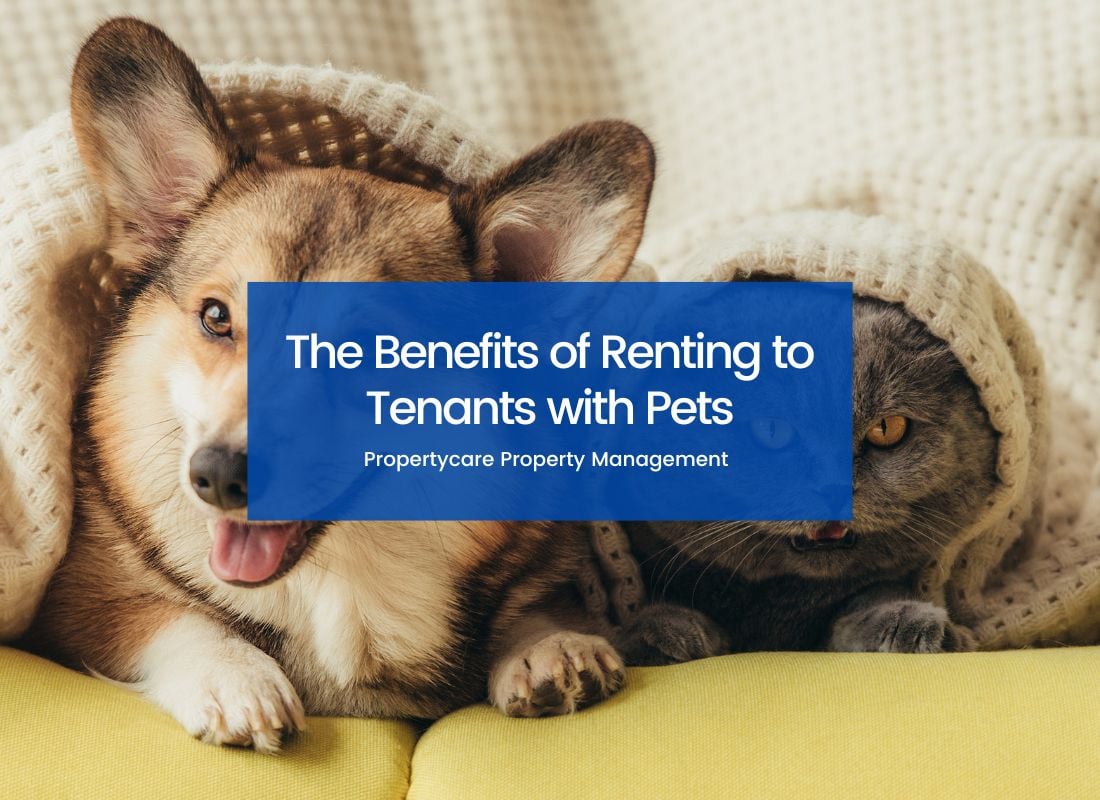Key Takeaways
- Pet-Friendly Rentals Attract More Tenants and Increase Income - Allowing pets can expand your pool of potential renters and justify higher rents, pet fees, or deposits. Since pet-friendly units are in high demand, tenants are often willing to pay more and stay longer, reducing turnover and vacancy costs.
- Responsible Pet Owners Tend to Be Reliable Tenants - Caring for a pet often reflects a renter’s sense of responsibility and routine, which can carry over into how they treat your property. These tenants are more likely to pay rent on time, follow rules, and communicate effectively.
- Clear Pet Policies Minimize Risks and Legal Issues - While pets can present risks like property damage or noise complaints, these can be mitigated through detailed lease agreements. A well-crafted pet policy helps set expectations, ensures legal compliance, and protects both landlords and tenants.
As a landlord, one of the decisions you'll eventually face is whether to permit pets in your rental property. While this choice comes with both advantages and potential drawbacks, carefully weighing the pros and cons can help you make a smart, informed call. If you decide to allow pets, it’s crucial to establish a clear pet policy in your lease agreement that outlines expectations, responsibilities, and consequences.

A well-crafted pet policy not only protects your property but also sets clear boundaries that help avoid misunderstandings down the road. It ensures both you and your tenants are on the same page from day one. In this post, we at Propertycare will explore why welcoming tenants with pets can be a strategic move and what to watch out for!
Why Being a Pet-Friendly Landlord Can Be a Win
While not every Houston landlord embraces the idea of tenants with pets, doing so can unlock several key benefits:
Additional Revenue Potential
Pet owners typically expect to pay more, whether in the form of pet rent, deposits, or one-time fees. While these fees are often used to cover potential pet-related damages, they can also increase your bottom line, especially when the pet causes minimal wear and tear.
Furthermore, because pet-friendly rentals can be harder to find, tenants are usually willing to pay a premium. This additional income can help offset any potential wear and tear caused by pets, making it a financially viable option. Just make sure that any additional fees or rent increases align with Fair Housing and rental laws.
A Larger Pool of Applicants
With pet ownership on the rise, more renters are seeking accommodations that welcome their furry friends. By opening your doors to pet owners, you automatically expand your market and attract a wider selection of prospective tenants, giving you more options to choose from.
Longer Tenancy and Increased Retention
Pet owners are less likely to relocate frequently, as it’s often difficult to find pet-friendly rentals. Many prefer staying put rather than repeatedly undergoing pet screening or risking rejection.

This increases your chances of retaining tenants long term. As a result, you benefit from reduced turnover costs and greater income stability.
More Responsible Renters
Taking care of a pet requires commitment and routine. From feeding schedules to vet visits, pet owners tend to be organized and attentive. These traits can carry over to how they manage your property, making them more likely to follow house rules and care for your investment property.
Responsible pet owners often demonstrate the same consistency in rent payments and communication, making them reliable tenants overall.
The Challenges of Renting to Pet Owners
Consider the following:
Increased Risk of Property Damage
Pets can be tough on a property. Stained carpets, scratched floors, and chewed furniture are just a few examples. To reduce the likelihood of damage, screen pets carefully and consider setting limits on size, type, or breed. Ensuring renters are responsible pet owners helps protect your investment.
Noise Complaints and Disturbances
Pets can be noisy. Barking dogs, meowing cats, or squawking birds may disturb neighbors. If complaints arise, it's important to address them swiftly. Your pet policy should include a clause about managing noise and outline the steps you’ll take if issues persist.
Safety and Liability Issues
Some pets may pose a risk to other tenants. Aggressive behavior can lead to injuries and in turn, potential liability.

Always ask tenants if their pet has a history of biting or aggression, and verify if the animal has been properly trained.
Additional Considerations
When deciding on whether or not to allow pets, consider:
Insurance Limitations
Not all insurance policies cover pet-related incidents, especially those involving restricted breeds. Before welcoming pets, review your policy carefully. Understand the limitations of your coverage and determine if adjustments are necessary to stay protected in the event of a claim.
Fair Housing Laws
It’s important to note that turning down renters with pets isn’t always legal. Under the Fair Housing Act, service animals and emotional support animals (ESAs) are not considered pets. Landlords must make reasonable accommodations for tenants with disabilities who require them, even if their rental is otherwise pet-free.
The Importance of a Pet Policy
If you do choose to allow pets, putting a solid pet policy in place is non-negotiable. This section of the lease agreement should clearly spell out what’s allowed and what isn’t. Include:
- Types, sizes, and number of pets permitted
- Required vaccinations or training
- Cleaning responsibilities
- Consequences for property damage or disturbances
- Fees, deposits, or additional rent
Bottom Line
Allowing tenants with pets doesn’t have to be an all-or-nothing decision. Yes, there are risks, but with the right policies and precautions, those risks can be minimized. On the flip side, the benefits, which are higher income, better retention, and access to a broader tenant base, can significantly improve your rental business.
If you’re on the fence, consider reaching out to a professional property management company. At Propertycare we can help create comprehensive pet policies, screen tenants, and ensure your property remains in excellent condition. Contact us today to learn how we can help you manage rentals with confidence and care!


